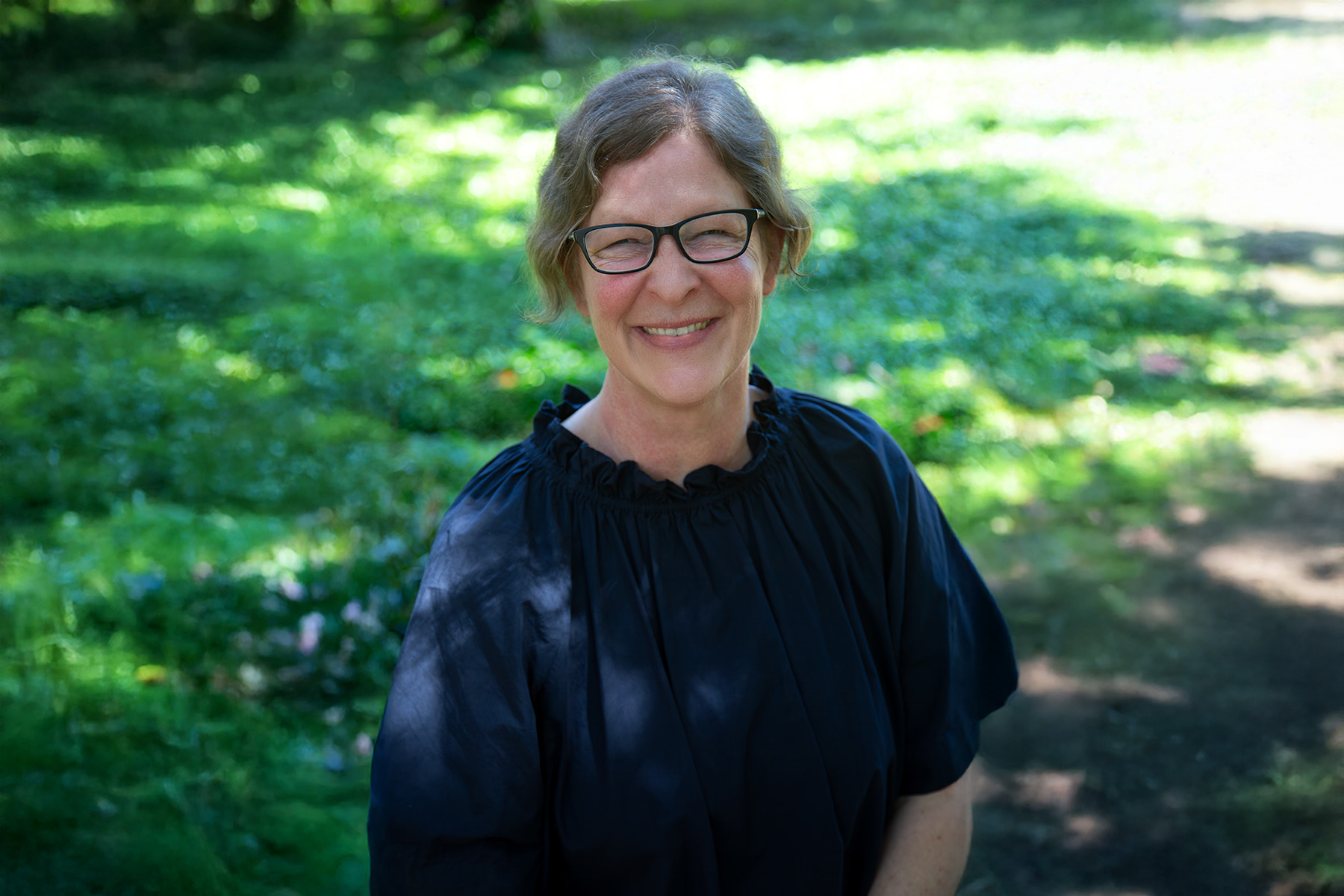
Florida State University’s Gwen Welliver has dedicated her career as a choreographer and dancer to exploring the expressions of lines in performance and visual art. In 2020, a new intangible but transformative line impacted her life and career, culminating in her recognition as a Guggenheim Fellow.
Welliver, associate professor in the School of Dance, is part of the 100th class of Guggenheim Fellows, 198 distinguished individuals working across 53 disciplines. She was among a group of about 3,500 artists, writers, scholars and scientists who participated in the John Simon Guggenheim Memorial Foundation’s competition. Her fellowship is in the choreography category.
“The Guggenheim Fellowship is one of the highest honors that can be awarded to an artist, and Gwen is truly deserving of this recognition,” said James Frazier, dean of the College of Fine Arts. “Her dedication to her craft shines through in her work as a choreographer, performer and instructor. Gwen is exploring new horizons in the field of dance and serving as a mentor to the next generation of leaders in the field. We are incredibly proud to count her among our School of Dance faculty, and to congratulate her on this prestigious award.”
Welliver’s work, which spans performance, teaching, opera and drawing, has been recognized with numerous awards and fellowships throughout her career, including the Bogliasco Foundation Fellowship in Choreography, the New York Foundation for the Arts Fellowship in Choreography, and the New York Dance and Performance (“Bessie”) Award for Sustained Achievement in Dancing.
“Thankfully, I have a brilliant, hilarious and generous family who encouraged me to keep applying for the Guggenheim Fellowship. That was good advice!” she said. “In this moment I want to immediately highlight all my extraordinary collaborators whose commitment, skill and character are of the highest caliber. Thank you to FSU’s Council on Research and Creativity for their invaluable support for the research necessary to make original work. I’m elated and deeply honored to be selected as a Guggenheim Fellow.”
In 2019, Welliver embarked on a new series of projects, driven by her curiosity about simultaneity — the idea of a performer negotiating multiple things at the same time, or within the work itself. Little did she know that the pandemic would soon hit and force her and her team to face this concept in a completely new way. Her ability to adapt to the shifting environment helped her create unique works and she continues to explore the theme of losing control of the outcome.
“The simultaneity of academic demands and creative pursuits has been a constant in my life. Being honored with the Guggenheim amidst a curriculum committee meeting, where I was mapping student learning outcomes to courses, beautifully illustrates the balance I strive for between my roles as an educator and a choreographer. It reminds me of the importance of focus and dedication to one’s work, regardless of the setting or recognition.”
— Gwen Welliver, associate professor in the School of Dance
“The fear and isolation brought by the pandemic turned private spaces into public ones, thanks to Zoom, and disorientation became a new reality,” she said. “However, losing control isn’t an obstacle but a gift. In allowing both the performer and the director to confront the impossibility of the task, we find true artistry in the struggle and unpredictability of the outcome.”
For her fellowship submission, Welliver proposed a piece called “We Are No Longer Ourselves (Live),” the eighth in a series of works including one live performance, three dance-on-video works, a documentary titled “Pandemic Dance Making,” and two in-process books of images.
As a choreographer, Welliver believes “adaptability is key; it involves reflecting on who you’re working with, where you’re working and the possibilities around you. It’s about embracing the contemporary moment and the people, place and time, thus unlocking new creative potential.”
Despite her preference for live performances, she adapted to the circumstances and produced video works, incorporating the close-up and framing techniques she had developed from Zoom rehearsals. Performers engaged in both simple and complex actions while also combining improvisation with storytelling that questioned reality and imagination.
“These tracks included physical tasks, such as line, fold and rotate, and simple stories like ‘go away and come back with purpose,’” she said. “This approach allowed for remarkable human moments and high-level improvisation.”
When Welliver finally brought her collaborators into the same room at the Baryshnikov Arts Center in New York City, she set up half of the studio space with mirrors and props to mimic the apartments they had been rehearsing in, while the other half remained open.
“This taught me a lot about the assumptions I had been making about my work and allowed the performers to traverse and re-situate their typical place of working,” she said.
The John Simon Guggenheim Memorial Foundation grants fellowships to individuals who have shown a significant capacity for productive scholarship or creative ability in the arts. Recipients receive a monetary stipend to support their independent work. Welliver plans to incorporate the concept of simultaneity throughout her fellowship, continuously exploring how performers negotiate multiple tasks in various contexts.
“The simultaneity of academic demands and creative pursuits has been a constant in my life,” she said. “Being honored with the Guggenheim amidst a curriculum committee meeting, where I was mapping student learning outcomes to courses, beautifully illustrates the balance I strive for between my roles as an educator and a choreographer. It reminds me of the importance of focus and dedication to one’s work, regardless of the setting or recognition.”



